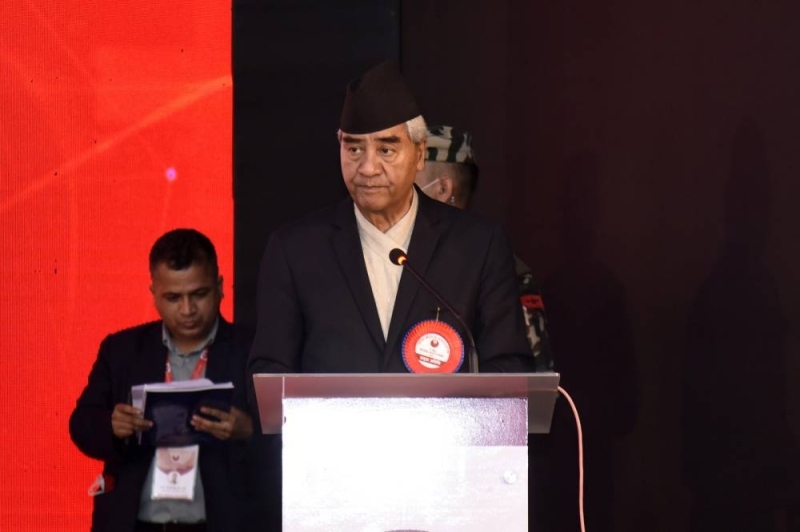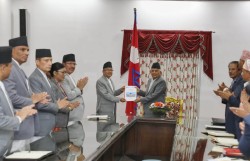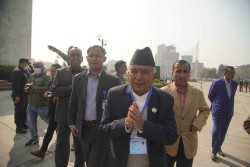Politics

On November 28, while the votes were still counted, NepalMinute.com carried a commentary that said in no uncertain terms: Prime Minister Sher Bahadur Deuba is the next prime minister. It gave a good number of reasons.
The Election Commission of Nepal has wrapped the counting of votes under the First-Past-The-Post (FPTP) system, which accounts for 165 members of Parliament in the 275-member House of Representatives.
The ruling coalition appears to control 136 FPTP seats, but the magic number required to form a government is 138. When the 110 Proportional Representation (PR) seats are allocated to the parties, the ruling coalition could go up to 132 or a couple more. The picture is clear: the alliance will require 4 or 5 more seats. Getting four or five elected MPs on board could be a hard nut to crack.
Race for premiership
At the start, as the counting progressed, the coalition partners were not at peace with one another, with a lot of finger-pointing going around. The newly formed outfit CPN (Socialist), a splinter faction of the CPN-UML, was the most disappointed. Disgruntled voices came from the CPN (Maoist Centre), as well. This made CPN-UML a bit upbeat. UML Chairman and former prime minister KP Sharma Oli looked buoyed and expected ruptures in the ruling coalition. Oli reached out to other parties, most notably the Maoist Centre, as he fancied himself as a strong probable contender for the plum job.
The dust soon settled.
Maoist supremo Prachanda, who at one point said, "All doors open" came to senses. CPN Socialist Chair Madhav Kumar Nepal appears to have come to terms with his party's poor in the elections – thanks to the PR votes that his party secured in the federal Parliament. His party won 10 seats – a big feat by any count – but looks least likely to be recognised as a national party because of the constitutional requirement of 3 per cent.
Stallion leads the race
Like it or not, Sher Bahadur Deuba looks to be the most probable candidate to stake a claim to form the government. Dr Shekhar Koirala, who contested against Deuba for the party's presidency last year, looks to be the only candidate from within the party to challenge Deuba in the race for Parliamentary Party Leader.
Congress youth leader and General Secretary Gagan Thapa, who projected himself as the prime minister in the making both in the lead-up to and after the election, is sandwiched between Deuba and Koirala. While Thapa has said he would give a run to Deuba, Koirala stands as the bigger challenge facing him.
Having secured 57 seats, the Nepali Congress sits at the head of the coalition. And Deuba looks in a much better position to form the government that is expected to take shape in a month or so.
The meeting at the Prime Minister's official residence on Monday afternoon shut down all prospects of an alternative coalition. Their decision "to give continuity" to the ruling coalition has slowed the race for the premiership, reinforcing his chances for a sixth term in office.

_11zon1677572614.jpg)




